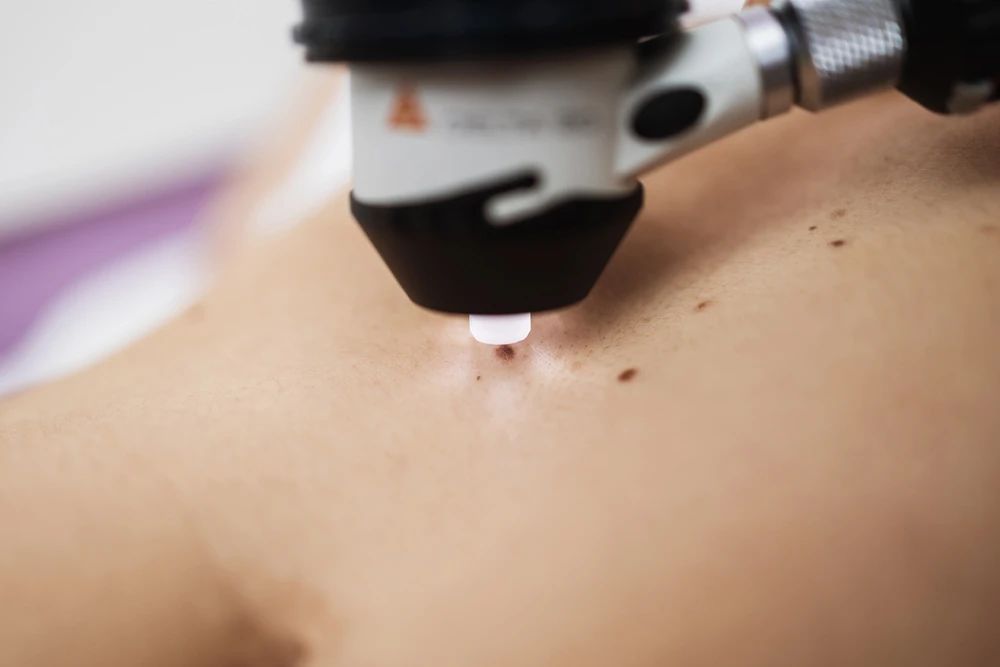Your Guide to Travelling with Contact Lenses
2021-07-09
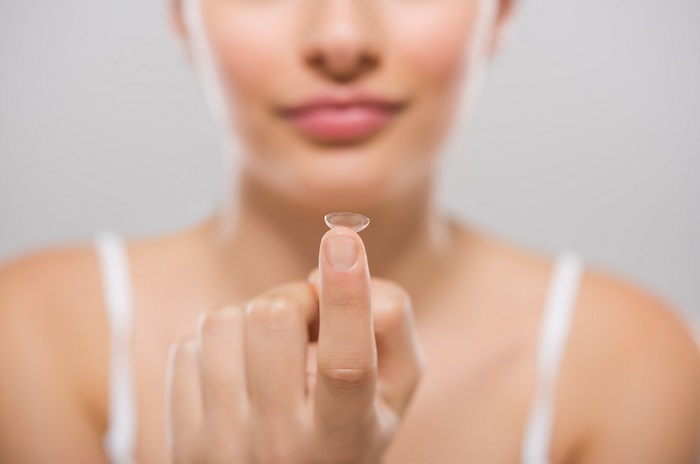
Being on the road can interrupt our daily routines but bear these tips in mind to maintain proper contact lens care and hygiene.
Contact lenses provide huge conveniences over wearing prescription spectacles while travelling, but they can come with potential hazards. Our guide to hygienic contact lens usage will help you plan your trip with 20/20 vision.
Basic care and hygiene
Handling your contact lenses
Most of us have been guilty of reusing contact lens solution on lazy nights, or taking off our lenses with grimy fingers.
Avoid these habits in the future, as failing to clean your lenses properly or handling them with dirty hands can cause bacteria to breed, hence causing infection.
Suggested duration of use
Users who wear their lenses for long hours, or past their expiry date have to be wary of possible eye infections. Always replace your lenses as prescribed by your ophthalmologist. It’s recommended that daily disposable contact lenses be used for a maximum of 12 hours, and never worn overnight.
Washing your contacts
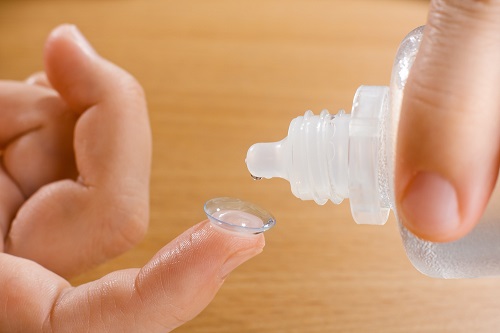
Wash your contact lenses with the appropriate sterile solution once a day. Gently rub your lenses to clean them better while rinsing them with the solution.
Don’t be stingy: use fresh solution in your case every time. Do not top up from the remaining solution, to prevent bacteria build-up.
To prevent contamination, wash your contact lens case and rinse it with fresh solution as well. Discard and replace a fresh case once every 3 months.
Avoid using water as a substitute cleanser
In this case, water is (literally) not a solution, and may contain microbes and viruses that can cause eye infections. Always opt for the appropriate sterile solution instead.
Consider daily contact lenses
For those who want maximum convenience, choose daily disposable contact lenses. This lets you skip the rigor of cleaning and storage.
Get annual eye check-ups
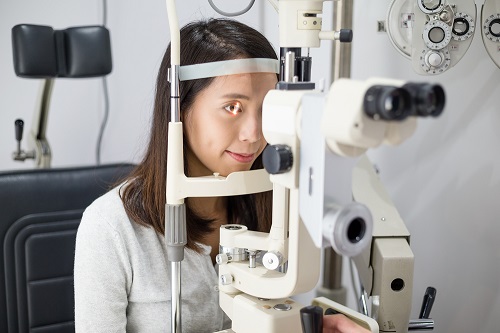
Regular eye checks are useful to detect cornea wear and tear, especially if you’re a contact lens user.
Contact lens users often run the risk of having damaged or weakened corneas due to prolonged years of wearing them. When in doubt, consult an ophthalmologist for advice.
Contact Lens 101 – Tips for travelers
Hitting the road for a trip? Bear these essential tips in mind for hygiene and care.
Keep those hand wipes handy
Have disinfected hand wipes, a hand sanitizer on hand, or go to a sink so that you can wear and remove your lenses in the most hygienic way no matter where you are when traveling.
Consider the country and climates

Replace your contact lenses often if you’re in cities or other areas with lots of dust, dirt and smoke. You can also consider using daily disposable contact lenses for convenience and to reduce the risk of infection, since there will be no concerns regarding cleaning and storage of the lenses. If you’re in an arid environment, pack lubricating eyedrops to wet your eyes as they may get very dry under those conditions.
Pack your prescription
If you’re on a far-flung trip to an exotic locale, bring your prescription along in case of language barriers. You’ll be able to approach an eye clinic if you require an emergency pair of contact lenses. But it’s still best to bring extra pairs of contact lenses.
Wear those eyeglasses
Even if you wouldn’t dream of ruining your selfies with eyeglasses, pack them for unexpected circumstances and as stand-ins.
Your eyes will need to take a break from your lenses after a long day out, or if you’re looking to nap on that long train ride.
Avoid contact lenses for water activities

Hands up if you’ve swam with your contact lenses in the depths of the ocean or the hotel’s swimming pool. While the convenience is certainly appealing, you run the risk of fungal and bacterial eye infections. If you do need to wear contact lens for water activities, the option would be to use a pair of daily contact lenses and discard them after. You could also wear your regular lenses (if they’re weekly, or monthly disposables), and change to a new pair after the activity.
Bring spares
If you’ve dropped your lenses in an alley or sidewalk, don’t try to re-use them – bacteria can still be present on both sides of your lenses. Instead, carry a spare pair, or two, when you travel.
Common issues and hazards
Despite our best efforts to keep our fingers clean and eyes safe, here are some common eye conditions that may just creep up on us.
Conjunctivitis and other eye infections
At the most basic level, dirty contact lenses can cause eye irritation and discomfort, but these issues can quickly evolve into common eye infections such as conjunctivitis (also known as ‘Pink Eye’).
When irritants such as smoke, dust, and even make-up build up on the lenses, one’s eyes can become red, itchy or experience a burning and stinging sensation. In serious cases, prescribed antibiotic eyedrops from a doctor may be required.
Dry eyes
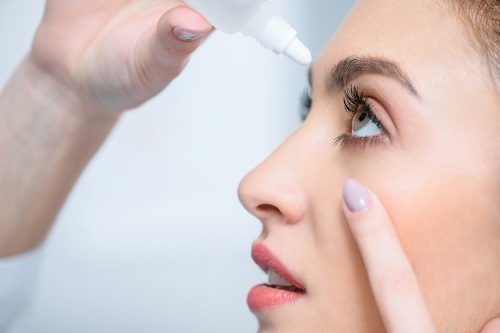
In dry climates, your eyes may experience more redness and irritation than usual if you’re wearing contact lenses.
Eye styes
Another common infection is the eye stye – a localized infection in or on the eyelid that looks like a boil or pimple. You may feel both pain and an increased sensitivity to light. If you do have an eye stye, stop contact lens wear immediately.
Corneal ulcers
Wearing dirty contact lenses for prolonged periods may cause corneal ulcers and abrasions, making the eye sensitive to light. If you’re experiencing any of the following symptoms, consult a healthcare professional immediately:
- Blurred vision
- Excessive tearing
- Eye redness
- Pus or discharge
- Sensitivity to light
- Sensations of having an object in your eye
- Swollen eyelids
- White spots on your cornea
Should you have a question regarding the health of your eyes, or if you are experiencing persistent discomfort, contact an ophthalmologist for an eye check-up.
For more information or to make an appointment, contact our Appointment Service Center at 400-819-6622.
Article reviewed by Dr Andrea Sonntag-Vega, Ophthalmologist at ParkwayHealth

Copyright: Health Plus an online health and wellness web resource developed by Parkway Singapore
References:
U.S Food & Drug Administration (n.d) Contact Lens risks. Retrieved on 29 October 2019 from https://www.fda.gov/medical-devices/contact-lenses/contact-lens-risks
Healthline (n.d.) Corneal Ulcer. Retrieved on 29 October 2019 from https://www.healthline.com/health/corneal-ulcers-and-infections
Cooper Vision (2015, Jul 23). 5 Summer Travel Tips for Contact Wearers. Retrieved on 29 October 2019 from https://coopervision.com/blog/5-summer-travel-tips-contact-wearers
Egan, John (n.d.). Traveling with your contact lenses? These 9 tips will help. Retrieved on 29 October 2019 from https://www.allaboutvision.com/contact-lenses/travel-tips/
Eye Institute (n.d.) Contact Lens Problems. Retrieved on 29 October 2019 from https://www.eyeinstitute.co.nz/about-eyes/a-to-z-of-eyes/symptoms/contact-lens-problems
Heiting, Gary (n.d.). Can contact lenses damage your eyes? Retrieved on 29 October 2019 from https://www.allaboutvision.com/contacts/faq/cls-damage-eyes.htm
Student Life University Health Service (n.d.). Wear Contact Lenses? Here’s How to Care for Your Eyes When You Travel. Retrieved on 29 October 2019 from https://uhs.umich.edu/travel-contacts
Shady Grove Eye and Vision Care (n.d.). 4 Common Contact Lens Problems and Their Solution. Retrieved on 29 October 2019 from https://youreyesite.com/4-common-contact-lens-problems-and-their-solution/
Segre, Liz (n.d.). Eye styes: Causes, symptoms, treatments. Retrieved on 29 October 2019 from https://www.allaboutvision.com/conditions/styes.htm
WebMD (n.d.). Contact Lenses and Eye Infections. Retrieved on 31 October 2019 from https://www.webmd.com/eye-health/contact-lenses-eye-infections#1









